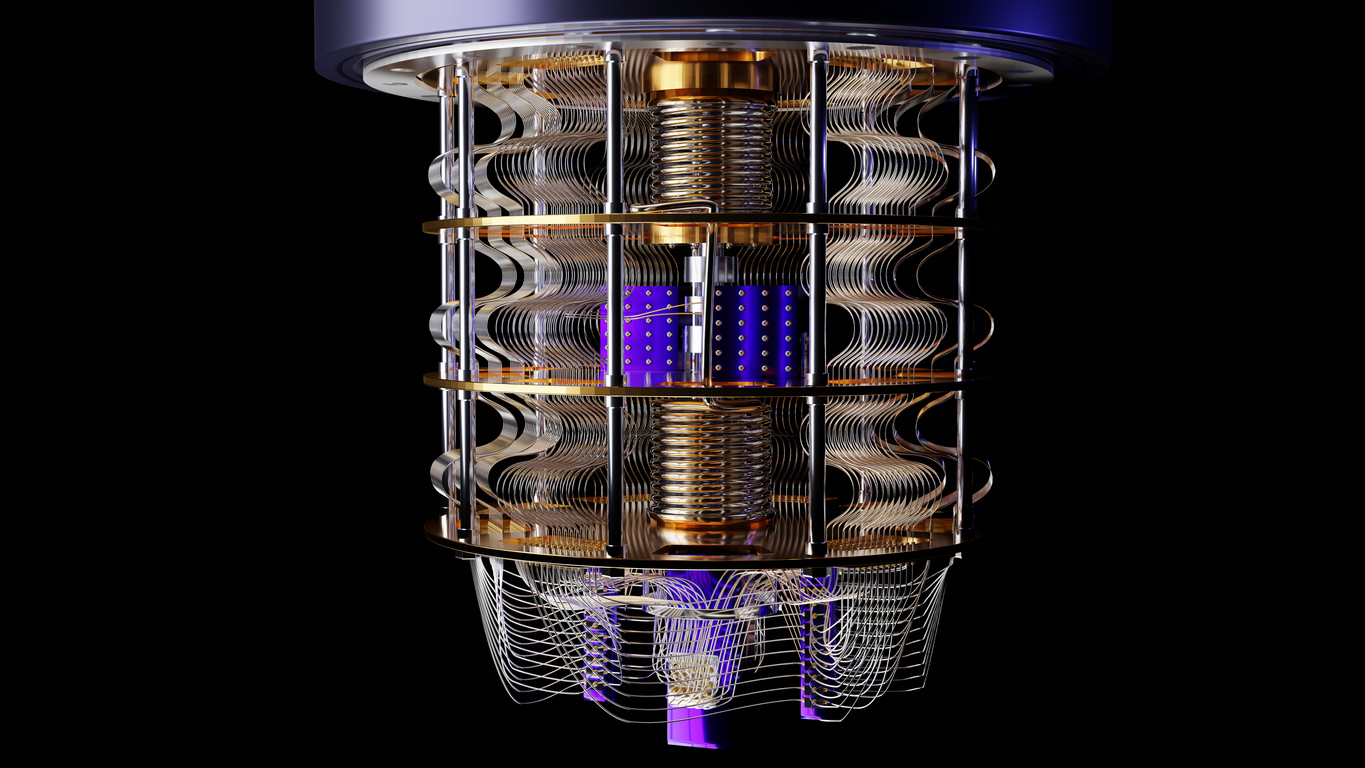 Rendering of a quantum computer, side view. (Image by iStock)
Rendering of a quantum computer, side view. (Image by iStock)Umesh Vazirani awarded $2.4M grant from DOE
The U.S. Department of Energy (DOE) has awarded Umesh Vazirani, professor of electrical engineering and computer sciences, $2.4M for exploratory research in quantum computing.
Vazirani’s work will focus on a central challenge in quantum computing: demonstrating quantum computational advantage on near-term NISQ computers. One of his goals will be to “explore new ideas for the development of noise-robust quantum computation with minimal overhead.” He aims to study different sources of “noise” — disruptive factors that affect the accuracy of quantum calculations — and develop techniques to measure and potentially correct them.
According to Vazirani, stabilizing quantum computers is the most important challenge to making quantum computers practical. It’s an essential step to realizing the enormous speedups promised by quantum algorithms for breaking modern cryptography and quantum simulation — and could possibly speed up machine learning.
Part of Vazirani’s project will be hosted at the Simons Institute for the Theory of Computing and will leverage the expertise of postdoctoral researchers in the Quantum Research Pod and the institute’s many visitors. The project will also help fund meetings designed to bring together a diverse group of researchers to exchange ideas and collaborate.
In addition to Vazirani’s grant, the DOE recently awarded a combined total of over $2M to the following engineering professors for their innovative research projects:
- Allen Goldstein, professor of civil and environmental engineering and of environmental science, policy and management, will study aerosol chemical composition to advance our understanding of climate-relevant cloud, aerosol, precipitation and thermodynamic processes.
- Raluca Scarlat, assistant professor of nuclear engineering, will use novel electrode geometry designs to study hydrogen concentration and diffusivity in FLiBe, a molten salt coolant used in nuclear reactors.
- Vladimir Stojanovic, professor of electrical engineering and computer sciences, will collaborate with Lawrence Berkeley National Laboratory to develop a modeling and evaluation framework for a Zetta-scale superconducting electronics-based supercomputing system.
- Karl van Bibber, professor of nuclear engineering, will lead a team of scientists as they search for an ultralight but extremely dense particle called the axion, which may account for the local dark matter in our galaxy.